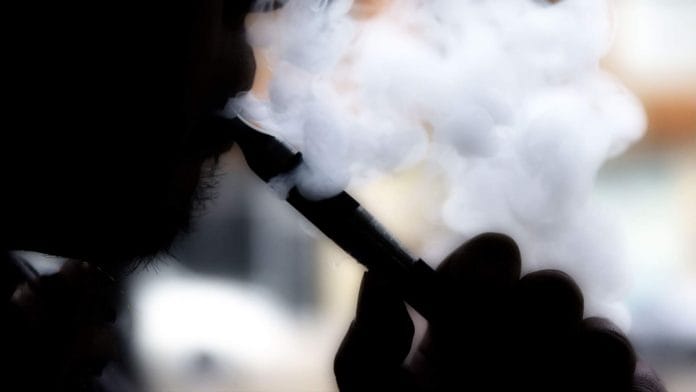Do you feel conscious and embarrassed about your dark lips? Is the area around your lips dry, scaly, and patchy too? This condition is commonly known as pigmentation, which shows up as discoloured patches around the mouth or elsewhere on your body. Pigmentation is caused due to an increase in melanin production, which darkens your skin in certain areas.
Although pigmentation isn’t a cause for major concern, it is your skin’s way of saying that something’s up. These patches might indicate unhealthy lifestyle choices and underlying health conditions, or could be side effects of a medication.
As a practising dermatologist for more than 12 years, I have seen a large number of men and women being bothered about pigmentation but unaware of the causes behind it.
Causes of pigmentation on the lips
Let’s first understand what causes pigmentation.
Smoking: This is one of the most common causes of lip discolouration. Smoking reduces blood flow and oxygen supply to the skin, causing oxidative stress that triggers melanin production and ultimately results in hyperpigmentation.
Allergy to cosmetics: Using certain cosmetic products that you may be allergic to can lead to skin inflammation and then post-inflammatory hyperpigmentation. Using dark-coloured matte lipsticks or expired products can also result in pigmented lips.
Overexposure to the sun: UV rays stimulate melanin production. This excess melanin can cluster in certain areas, creating darker patches on our skin. Areas that are exposed more to the harsh rays of the sun will be the first to get affected. Certain individuals with lower immunity (due to diabetes, genetic reasons, or vitamin deficiencies) may also develop some darker patches on their bodies.
Vitamin deficiency: Insufficient levels of Vitamin B12 and Vitamin D can disrupt melanin production and skin regeneration, potentially leading to pigmentation irregularities.
Skin conditions: Certain skin conditions can cause or aggravate pigmentation. Acanthosis nigricans, caused by insulin resistance, leads to the development of dark, thick patches on certain areas of the body. Other conditions such as atopic dermatitis, seborrheic dermatitis, and dry skin can also darken the skin around the lips.
Hormonal changes: Hormonal fluctuations related to conditions like hypo or hyper thyroidism and pregnancy can impact melanin production and contribute to dark patches.
Allergy to fluoride: Allergic reactions to toothpaste ingredients, especially fluoride, can cause localised hyperpigmentation around the mouth due to skin irritation.
Habits: Lip licking and drooling during sleep can cause pigmentation too. Saliva can compromise lip skin’s barrier and make it more susceptible to environmental factors and potential pigmentation.
Alcohol-based toners: These can strip the skin of its natural oils and cause irritation and inflammation, which might trigger pigmentation.
Genetic problems: While dark circles aren’t genetic, pigmented lips may run in the family. The reasons could be malabsorption and Vitamin B12 deficiencies.
Also read: As a dermatologist, why it’s not easy for me to prescribe generic medicines
Some treatments to try
I have treated both Indian and foreign national patients with pigmentation. Here are some remedies to resolve this issue.
Try topical treatments like applying Vitamin C, Alpha Arbutin, kojic acid, liquorice extract, and depigmenting creams. If you have dry skin, do not forget to mix the depigmenting cream with moisturiser. These creams can be used for up to months, and then restarted after a break of 3-6 months.
Apply a broad-spectrum sunscreen every 2-3 hours as it helps save the skin from harmful UV rays.
You should not frequently rub the pigmented area as it can trigger inflammation and worsen your condition.
Having one apple a day can keep pigmentation around the lips away — it will provide adequate amounts of Vitamin B needed in the body.
You can also opt for home remedies like applying curd or honey. Both have soothing and de-tanning properties that can be used to reduce pigmentation.
Do not apply lemon and turmeric as they might irritate the area and trigger more pigmentation.
For in-clinic treatments, you can opt for chemical peels and Q Switch laser, which are quite effective in reducing pigmentation around lips.
Including lifestyle changes like quitting smoking can greatly help in reducing darkness around the lips. You must also avoid passive smoking, as that too can trigger pigmentation.
Although these treatments are helpful, I would recommend against experimenting on your skin without doing a patch test first. If you are visiting a dermatologist for the treatment of acute pigmentation, which has lasted three months or longer and is not genetic, then it is a good idea to get a test done for S-Vitamin B12 and Vitamin D levels.
Young boys and girls also develop pigmentation due to poor dietary choices. Consult your doctor for a better understanding of your skin condition and its treatment. Everyone’s skin is different, so it’s better to analyse it because you might require prescription-based medications for the best results.
Dr Deepali Bhardwaj is a dermatologist, anti-allergy specialist, laser surgeon and internationally trained aesthetician. She tweets @dermatdoc. Views are personal.
(Edited by Humra Laeeq)






